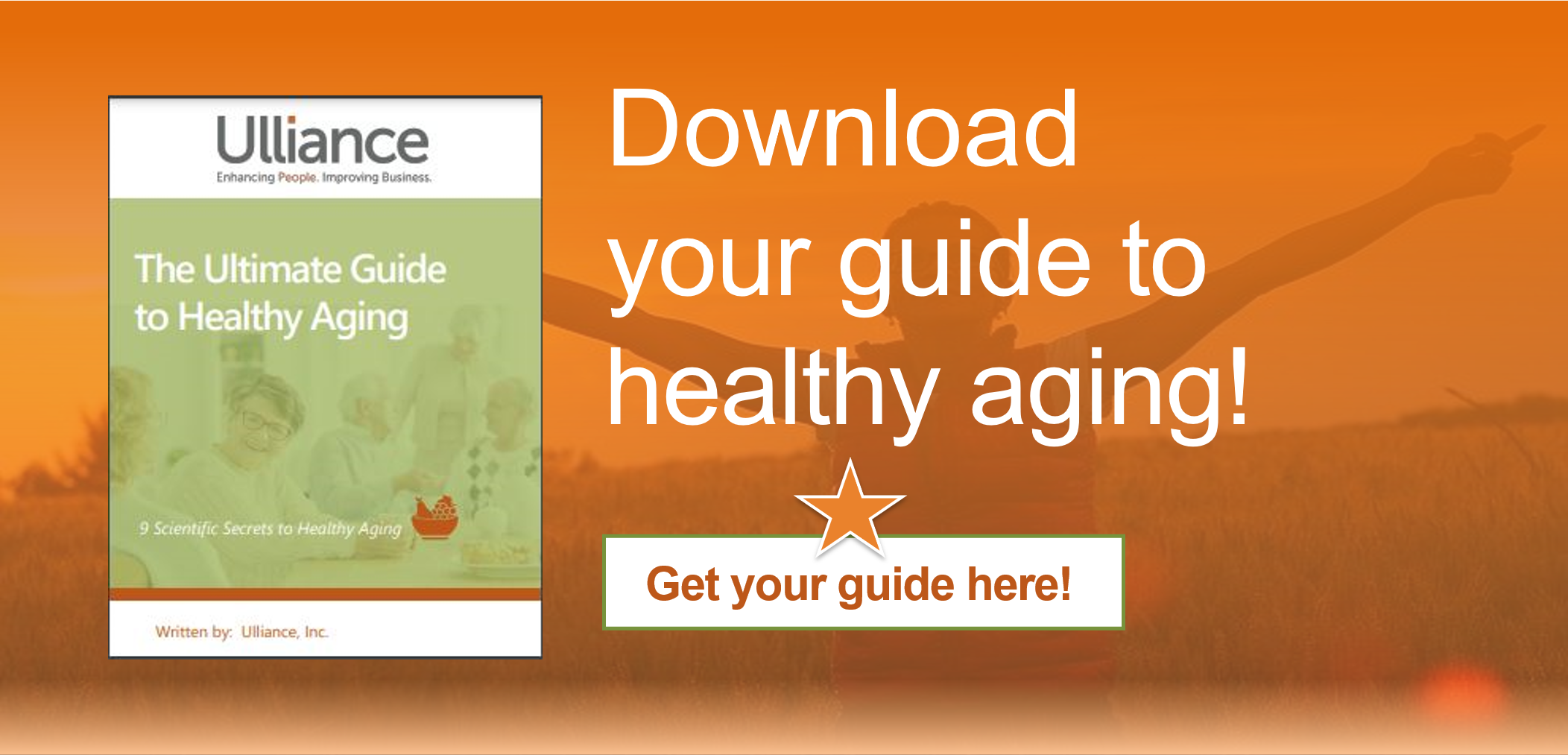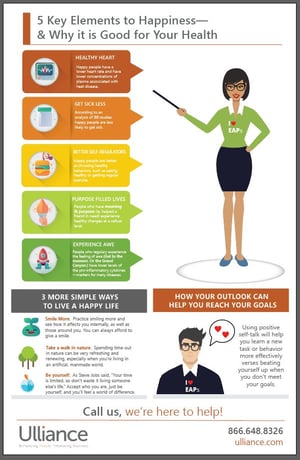A Happier You is a Healthier You
Happiness. It means different things to many people. Saturday, March 20, 2021, is the International Day of Happiness. The day was first recognized in 2013, when the United Nations declared March 20th to be the International Day of Happiness. The United Nations wanted to help the world to realize the importance of happiness in people's lives around the world
It's important to understand that happiness is more than a state of being and affects more than your emotions. Being happy in the moment can help you to build a momentum of happy moments, which in turn can help you live longer.
"No Medicine Cures What Happiness Cannot" -Gabriel Garcia Marquez
The Science of the Happiness and Health Connection
There is an array of scientific literature detailing how negative emotions harm the body. People who are serious all the time, negative or undergoing sustained stress, can undergo biological changes in a way that, over time, leads to illnesses such as heart disease, diabetes and stroke. Chronic anger and anxiety disrupt the function of the heart's electrical stability and increase systemic inflammation.
If negative emotions can cause our body to fall apart, wouldn't positive emotions make us healthier? Research over the last ten years indicates that, yes, positive emotions such as hopefulness, emotional balance, happiness and being active in life all appear to reduce the risk of coronary heart disease.
A review in the journal, Applied Psychology: Health and Well-Being examined the effects of what they call "subjective well-being" (which is a measure of how people evaluate their own life) on different aspects of physical health. The results, along with at least 20 studies before this one, confirmed that happiness undoubtedly influences health.
In 2017, another study was conducted on 7,000 adults aged 42-72 to see if there was a link between a healthy lifestyle and psychological well-being. It found that emotional vitality, a sense of enthusiasm, hopefulness, and happiness reduce coronary heart disease risk even when taking into account wholesome behaviors like not smoking and regular exercise.
Studies are ongoing, and the findings thus far are promising in offering a tie from psychological well-being to aging and health at the cellular level. Don't get old before your time. Learn to be happy on your journey through life.
Happiness is Not a Destination; It's a Way of Life
A happy life doesn't just happen to you. You don't find it when you have more of what you want or less of what you don't want. It doesn't come with 5 million dollars, but it isn't lost when all you've got is a $5.00 bill in your pocket to pay for a $5.10 carton of milk. It is scientifically proven that money cannot buy happiness.
You can't find happiness because it isn't a place you reach or something you find, but rather a way in which you live. Happiness is the summation of your:
- Willingness to grow
- Acceptance and embracement of the moment
- Your honor for your morals and calling in life
- Gratitude for everything, even things that hurt
"Happiness is the journey, not the destination" – Ralph Waldo Emerson is often credited for that quote even though those were not his exact words. However, they do nicely capture his intent, and its relevance is still accurate after 80 plus years.
Click the Image to Download the Happiness Poster!
It is easy to give tips and offer advice on how to live a happier life. It isn't easy to embrace the advice and act on it, so you actually do live a happier life. Some components of happiness may be inborn or shaped by positive life circumstances. Still, you have the choice to make your life happier, not by external, material things, but by creating internal well-being.
Research suggests that positive attributes help people avoid or healthfully manage heart attacks, strokes, diabetes, depression and other diseases. The key characteristics to a happier life are:
- Emotional vitality – a sense of enthusiasm and hopefulness
- Optimism – believing that good things will happen
- Supportive networks – family and friends
- Resilience – bouncing back from stress and feeling that things will get better
- Choosing healthy behavior – physical activity, not drinking excessive alcohol and eating healthy
Each of these attributes is associated with an actionable behavior. You will find the pathway to a happy journey by actively pursuing activities that fully engage you, such as exercise and doing good deeds for yourself and others.
Researchers explored people's satisfaction levels in their everyday activities and found that people report the greatest satisfaction when they are totally immersed in what they are doing. Mindfulness has a similar theory. It is the practice of being present in the moment. Enjoying the experience of what you are doing, however mundane it may be.
Doing good deeds is a form of acting selflessly. It is searching for meaning outside yourself. More than that, it is learning to know your true self and then acting in accordance with your morals and virtues.
How you perceive yourself and your well-being is directly related to your health. Happiness begets health. It is as simple as that.
Happiness is not only good for the soul, but for the body as well, and It's within your power to achieve a state of happiness. So, don't worry—be happy!
Now more than ever, your employees need emotional support and resources. The pandemic has created a whole new set of physical, financial and emotional stressors that have woven their way into the home and workplace.
Hundreds of organizations support their employees through The Ulliance Life Advisor Employee Assistance Program (EAP). Investing in the right EAP to support your employees before, during and after they face adverse events will help them and help you. Visit ulliance.com, or call 866-648-8326.
References
Ed Diener, S. D.-C. (2017, JULY 14). If, Why, and When Subjective Well-being Influences Health and Future Needed Research. Applied Psychology: Health and Well-Being, 9 (2), pp. 133-167. Retrieved from https://iaap-journals.onlinelibrary.wiley.com/doi/full/10.1111/aphw.12090
Healthbeat. (2012). The happiness-health connection. Harvard Health Publishing. Retrieved from https://www.health.harvard.edu/healthbeat/the-happiness-health-connection
Heintzelman, K. K. (2020). Happiness Improves Health: Experimental Evidence from a Randomized Control Trial of an Online Positive Psychology Intervention. Psychological Science, 10.1177. Retrieved from https://pubmed.ncbi.nlm.nih.gov/32579432/
mACmILLAN, a. (2017, July 20). It's Official: Happiness Really Can Improve Health. Retrieved from Time: https://time.com/4866693/happiness-improves-health/
Rimer, S. (2011, Winter). Happiness $ Health. Retrieved from Harvard T.H. Chan School of Public Health: https://www.hsph.harvard.edu/news/magazine/happiness-stress-heart-disease/



